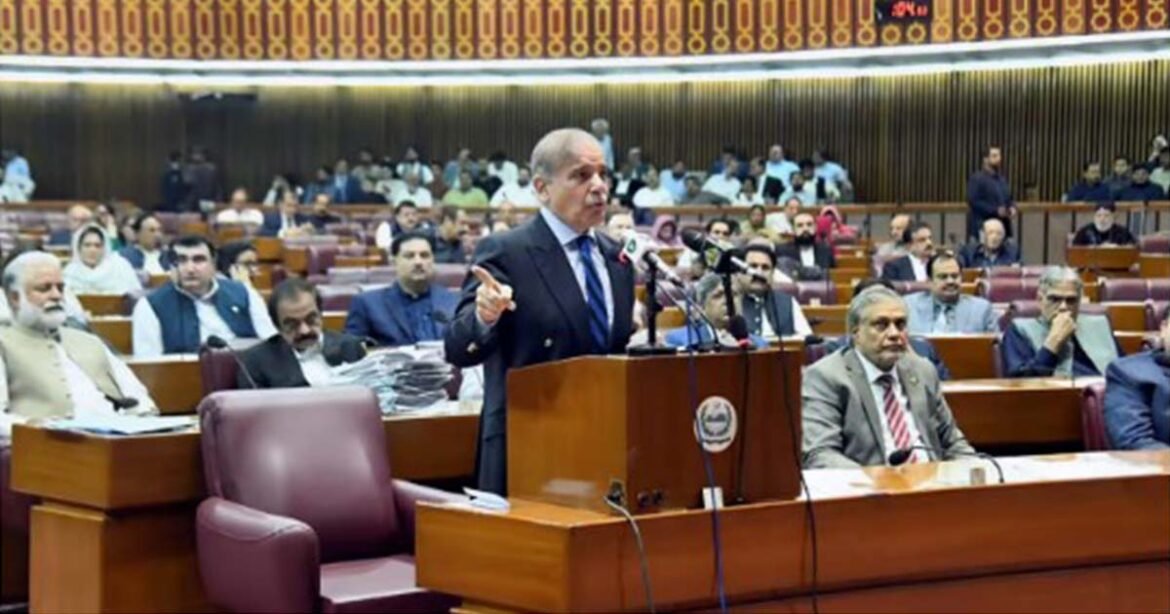Amid political turmoil and an ongoing economic crisis, Pakistan dissolved its parliament late on Wednesday on the recommendation of Prime Minister Shehbaz Sharif, setting the stage for a general election. The dissolution has paved the way for a caretaker government to oversee elections in which former prime minister Imran Khan will be unable to participate, According to source.
Khan was jailed over the weekend after being convicted of corruption in one of the several cases filed against him since his removal from office in April 2022.
The Pakistani president has given the outgoing government three days to appoint a new interim prime minister and 90 days to hold general elections. However, the outgoing government has warned that the elections may be delayed until next year.
You can also read: Prominent Bangladeshis issues statement to 14 US Congressmen
However, the election might be pushed back by several months due to the election commission’s intention to reconfigure numerous constituencies using the latest census.
In his official statement, Shehbaz Sharif conveyed his intent to commence discussions with the opposition leader on the upcoming Thursday. The objective of these discussions is to collaboratively choose a caretaker Prime Minister from a pool of candidates suggested by both political parties.
The replacement of Sharif in his role as interim Prime Minister remains uncertain. The government has set the groundwork for extending the election timeline beyond the original November cutoff. This unfolds concurrently with the fact that Imran Khan, the primary adversary of the ruling establishment, is presently serving a three-year prison term for corruption charges.
What next for Pakistan, and Imran Khan
According to reports, Pakistani government is contemplating the postponement of elections due to the challenge of quelling security and political issues that pose a threat to an already financially strained nation.
The instability in Pakistan has also prompted vigilance from the United States.
“We are naturally concerned about any actions, particularly those involving violence, that could contribute to destabilization in Pakistan or, frankly, any other nation sharing our common counterterrorism interests,” stated White House official John Kirby, as quoted by the news agency AFP.
In the previous general elections of 2018, Khan’s Pakistan Tehreek-e-Insaf (PTI) secured the most seats, and the former cricket star assumed the prime minister’s office three days afterward.
As the prospect of general elections looms once again, Pakistan’s military, which has orchestrated at least three successful coups since 1947, casts its influence across the strife-ridden nation anew.
Experts contend that both Khan’s ascent to popularity and his subsequent removal were significantly influenced by the military, with whom he regularly clashed. The former Pakistan cricket captain led a campaign of dissent against the military, asserting its interference in politics. He even accused an intelligence officer of orchestrating a November assassination attempt in which he was shot in the leg.
Despite Khan’s endeavors, including staging protests for early elections and withdrawing PTI lawmakers from parliament, his campaign against the military ultimately faltered as he faced more than 200 legal cases.
Ex-Prime Minister Khan Denied Seeking Re-Election:
Imran Khan’s appeal against his conviction has kept him away from the election campaign, coinciding with his party’s strong performance in polls.
The Islamabad High Court, considering his appeal, wants input from the government and election commission before deciding on potentially annulling the conviction and releasing Khan.
Khan’s three-year prison term began for trading state gifts and hiding assets during his 2018-2022 tenure. Despite a no-confidence vote in April 2022, he remains influential and denies the charges.
Claiming military involvement, Khan attributes his removal to them, but the military rejects this. He met his lawyer once since his detention in Lahore on Saturday.

Earlier in May, Khan was arrested on corruption charges which set a sparkling series of violent protests across the country. Pakistan’s supreme court responded within days, declaring his arrest unlawful and ordered his immediate release.
Since his ousting, Khan alleges a plot involving Washington, Sharif, and the military, denied by all three parties.
The Rise of Pakistan Muslim League Party
Sharif’s administration grappled with various difficulties, most notably a severe economic downturn and catastrophic floods that caused 1,739 fatalities and inflicted $30 billion in damages on Pakistan last summer.To prevent defaulting on debts, Pakistan secured a $3 billion bailout package from the International Monetary Fund, providing a crucial lifeline for the nation.
A noteworthy achievement for the government was being removed from the Financial Action Task Force’s list of countries struggling with money laundering and terrorism financing issues.
Furthermore, to address the challenge of foreign currency shortage, the government successfully negotiated deals to import Russian oil.Sharif will continue as prime minister until the caretaker Prime Minister assumes office, a transition expected to occur this week.
In terms of political competition, Sharif’s ruling Pakistan Muslim League party is anticipated to face tough challenges from Khan’s party, even though Khan’s participation depends on his conviction being overturned.
For Imran Khan, analysts suggest that his true leadership test is just commencing. How well he navigates the mental and physical challenges of imprisonment will profoundly influence his political future.


